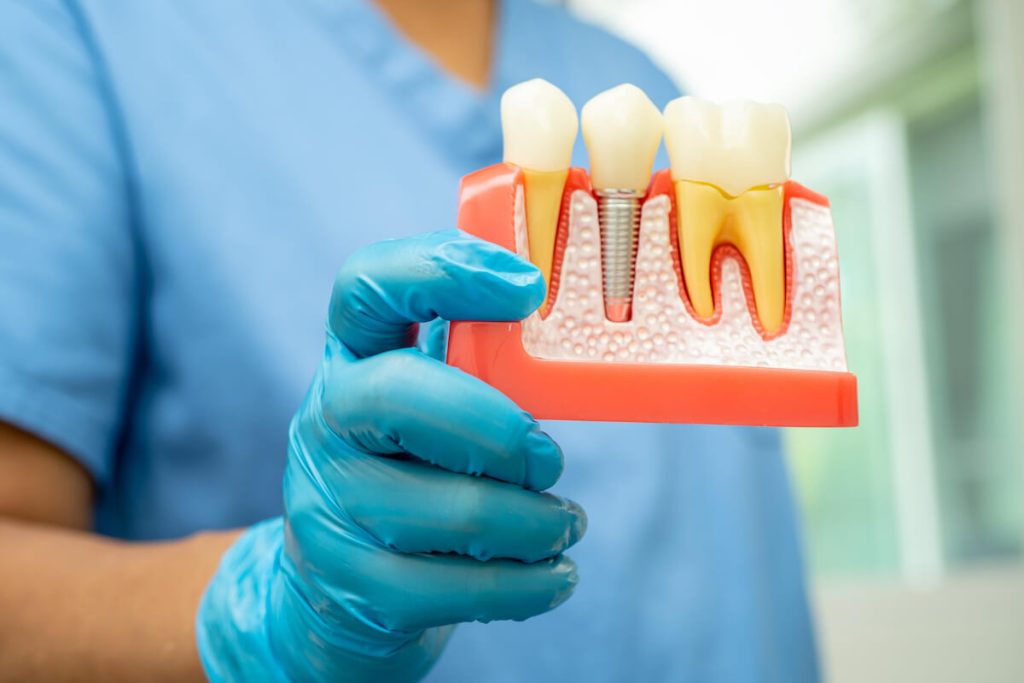Are Dental Implants Painful? What to Expect

If you’re concerned about the potential pain involved in getting dental implants, you’re not alone. Many people share this worry, but understanding the process can help you resolve some of your concerns.
Consultation and Planning Stage
Your journey with dental implants starts with a consultation with your dentist or oral surgeon.
During this session, your Leederville dentist will assess your oral health, take X-rays, and maybe perform a 3D scan of your jaw to develop a detailed treatment plan.
This step is crucial to ensure the implants are placed correctly and to determine whether preparatory procedures, such as bone grafting, are needed.
At this stage, you won’t experience any pain. It’s all about gathering information and planning the best approach for your unique situation.
Preparatory Procedures
Preparatory operations, such as tooth extractions or bone grafts, may be required before receiving dental implants.
If you require an extraction, your dentist will use local anaesthesia to numb the area so you won’t feel pain during the procedure.
Some discomfort afterwards is normal but usually manageable with over-the-counter pain medicine.
Bone grafting is another procedure that may be necessary if you don’t have enough bone density to support an implant. This doesn’t sound very comforting, but it’s a routine procedure performed under local anaesthesia. Post-operative discomfort is similar to an extraction; most people find it manageable.
The Implant Surgery
Your dentist will make sure you are comfortable before beginning your implant operation.
Local anaesthesia is commonly used to numb the area where the implant will be placed. You might feel some pressure or movement, but you shouldn’t feel any pain during the surgery.
For those who are particularly anxious or require multiple implants, sedation options are available. You can feel more at ease, and the process moves more quickly with sedation.
Post-Surgery Expectations
After the anaesthesia wears off, you might experience discomfort, swelling, and bruising.
This is a normal part of the healing process and typically peaks within 48-72 hours after the surgery. Your dentist will prescribe pain medicine to help manage any discomfort you might feel.
Here are some tips to help you through the recovery process:
- Follow Your Dentist’s Instructions: Your dentist will provide detailed post-operative care instructions. Following these will help ensure a smooth recovery and reduce the risk of complications.
- Use Ice Packs: Applying ice packs to your face in the first 24 hours can help minimise swelling.
- Take Pain Medicine as Prescribed: Don’t wait until the pain is severe before taking your medicine. Keeping up with your pain management might help you recover more comfortably.
- Stick to a Soft Diet: Soups, mashed potatoes, and yoghurt are soft meals that can help reduce inflammation at the implant site.
- Maintain Good Oral Hygiene: Maintaining oral hygiene to heal is essential. Your dentist will advise you to brush and rinse your mouth during the initial healing period.
The Healing Phase
The healing process, known as osseointegration, is when the implant integrates with your jawbone. Although this stage may require several months, it is essential to the implant’s long-term success.
It would help if you experienced minimal discomfort during this time, though you might have occasional soreness as your mouth adjusts.
Regular dental check-ups will guarantee that everything is going well.
If you have persistent discomfort or strange symptoms, contact your dentist immediately.
Final Restoration
Once your implant fully integrates with your jawbone, it’s time for the final restoration. This involves placing a crown, bridge, or denture on the implant. Attaching the restoration is straightforward and typically involves little to no discomfort.
Comparing Pain Levels to Other Dental Procedures
Many people find that the pain associated with dental implants is comparable to or even less than that of other dental procedures, such as tooth extractions or root canals. The anticipation of pain is often worse than the experience, and most patients are pleasantly surprised by how manageable it is.
Emotional and Psychological Considerations
It’s important to acknowledge that anxiety about dental procedures is expected. If you’re feeling anxious, talk to your dentist about your concerns. Many dental offices offer sedation options and have experience helping patients manage their fears.
Dental Implants in Leederville
Are you considering dental implants? Don’t let fear hold you back. The discomfort is mild and temporary, and the long-term benefits are worth it.
Book your consultation today and experience the benefits.
Dentists on Vincent Leederville take the time to discuss your alternatives and how we can give you a smile to be proud of.
Call (08) 9242 4400 or make an online appointment.
Visit us at 322 Vincent St in Leederville.

Book Your Consultation Today!
- We accept Eftpos, Mastercard, Visa Card, HICAPS and All Major Health Funds.
Contact Info
Dentists on Vincent Leederville
Address: 322 Vincent St, Leederville, WA 6007
Phone: (08) 9242 4400
Opening Hours
Mon: Closed
Tue: 9:30 AM – 5:30 PM
Wed: 9:30 AM – 6:30 PM
Thu: 9:30 AM – 5:30 PM
Fri: 9:00 AM – 3:30 PM
Sat: 8:30 AM – 12:30 PM (by appointment)
Sun: Closed
PARKING/PUBLIC TRANSPORT
There is ample car parking across the road from the practice
There are cafes and eateries within walking distance
LOCATION
Dentists on Vincent is located in Leederville, 14 min from Northbridge and only short stroll from Leederville Oval and Water Corporation
Leederville dentist also serving local communities in West Leederville, Northbridge, North Perth, Wembley, Floreat, Mount Hawthorn, Subiaco, Menora, Coolbinia and Jolimont.
